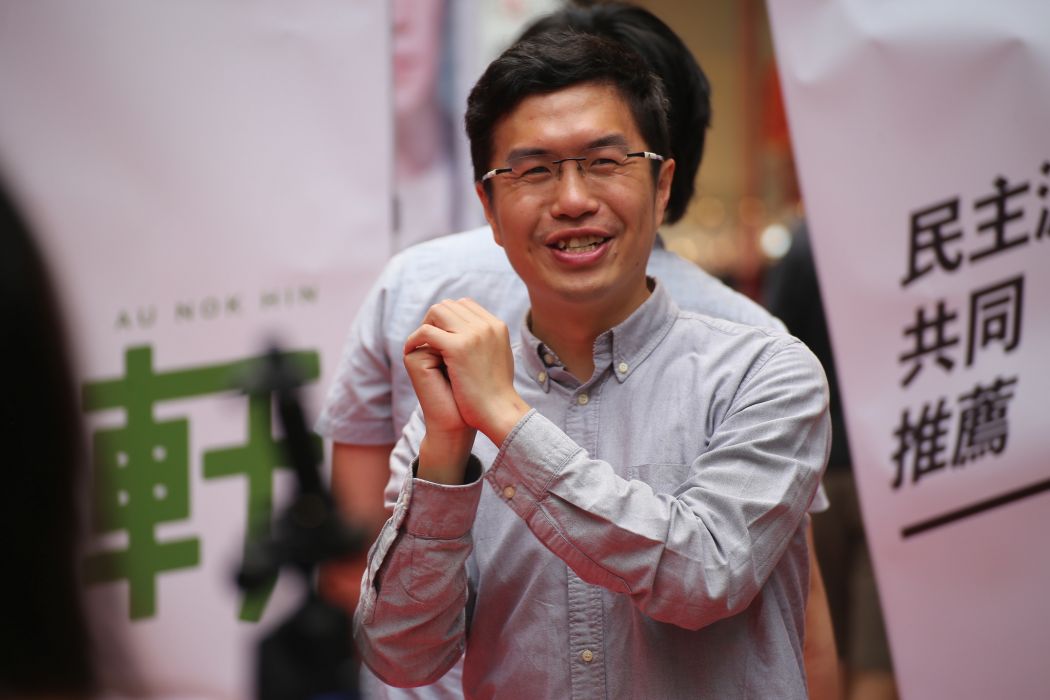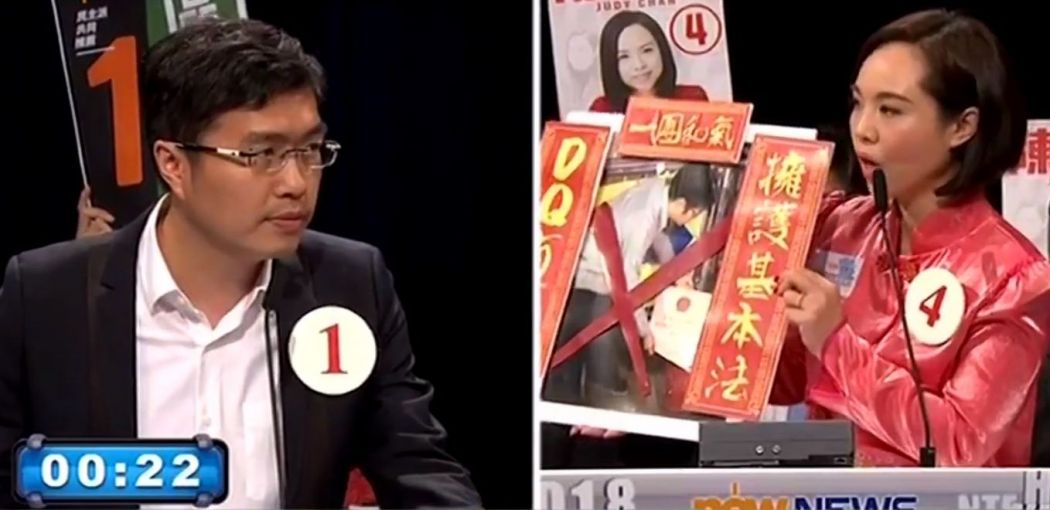No one contests the freedom and fairness of this month’s by-election. No-one stuffed any ballot boxes. No one broke any election laws. The legal challenge to Au Nok-hin’s electoral success relates to the candidate’s political speech in 2016.
Last week, we learned that Wong Tai-hoi had tried to use Hong Kong’s particular institution of judicial review to unseat the pan-democratic candidate. The institution of judicial review occupies a storied and venerable position among Hongkongers – who see such review as the last and best stop on the road to justice.

What injustice has Au committed? What are the legal issues? And what does this action teach us about Hong Kong’s jurisprudence?
Some in Hong Kong’s local press have already passed judgment on Wong Tai-hoi’s petition. He addressed his press briefing “in Cantonese with a Mandarin accent” (ah ha, a Mainlander with unknown motivations).
The same account paints a picture of former pro-Beijing lawmaker Wong Kwok-hing calling the shots… funding Wong’s application for review and speaking for him at the briefing. Au supposedly burned a copy of the Basic Law – and now was an enemy of Communist Party and the Mainland government.
This is a case about the pan-democrats’ and establishment parties’ control of the Legislative Council… masquerading as a case about Au’s injustice to the nation versus his just right to political speech.
Let’s discount for now the particulars of that speech (namely was it a real Basic Law? Is burning paper ‘speech’?) But to use legal review to stop his investiture to the LegCo?

Most democratic systems seal off politics from the legal system like the zombies in a Hollywood virus-takes-over-the-world epidemic movie.
Electoral commissions deal with irregularities in running and voting. Parliaments regulate their own members and their past, present, and future conduct. Criminal and civil law take care of affronts to The People and particular persons.
Impartial (and thus legitimate) law must fall silent in the clash of political ideas. Public opprobrium should have sealed Au’s fate at the ballot box.
Yet, Wong is not to blame. We must blame a phenomenon growing world-wide. The possible benefits to Wong’s sympathisers vastly exceed the costs to his financial patrons.
But the costs to the courts, to lawyerly reputations, and our own perception of justice – far exceed those of the court motion. Economists call this an externality. Hong Kong increasingly follows the Americanised practice of law – and indeed the global trend to try-it-and-see-what-happens.
Economists call on professional associations and governments to tackle these externalities. Should the Law Society have a position on lawyers taking these kinds of cases? Should the cost of filing these kinds of motions rise? Yes. Yes.

Judicial review – like its cousins worldwide – serves to protect citizens against the awesome misuse of government power (by judging laws’ constitutionality and government’s respect of the rule of those laws). That’s it. Ultimately, its about justice.
Review is not about settling disputes or arbitrating the great philosophical debates of the time. Is it our fault as lawyers if people don’t see it this way? Or is it the fault of a legal externality which makes these motions a high-gain-low-risk proposition?
There is nothing wrong with fighting for what you believe. But litigation represents too costly a form of speech. And until we tackle the externality driving these kinds of cases, we have not seen the last of the The People v. Some Other People in the guise of Au v. Wong.
Correction 19/3: A previous version of this piece suggested Au’s controversial speech was made five months ago. It was, in fact, made in 2016.
